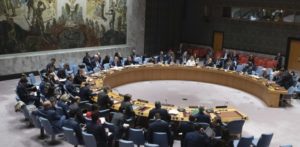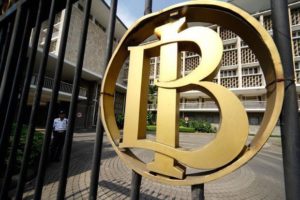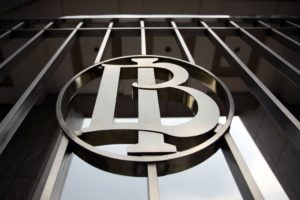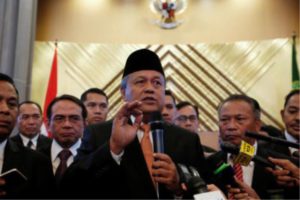BI-Indonesias-central-bank..jpg" alt="" width="3150" height="2100" class="size-full wp-image-106594" /> BI ,Indonesia’s central bank.
Jakarta, MINA – Indonesia’s central bank signaled the end of monetary policy easing as it focuses on inflation risks, such as rising food and oil costs, Bloomberg Markets reported.Friday.
After keeping the benchmark interest rate at 4.25 percent — as forecast by all 24 economists surveyed by Bloomberg — Assistant Governor Dody Budi Waluyo indicated there’s limited room for rate cuts after eight reductions in the past two years.
“The monetary stance remains neutral,” he said in Jakarta on Thursday. “We will bring inflation to meet the target of 3.5 percent. Future risks remain, but we see the window for cutting rates is closing.”
Economists are split on whether Bank Indonesia will cut, hold or raise interest rates this year. The bank has been on hold since October, and while it’s still concerned by lackluster credit demand and economic growth that’s stuck at about 5 percent, it’s guarding now against higher inflation — in particular rising food costs, with rice gaining 6.1 percent in the past two months.
Also Read: Saudi Arabia Wins Bid to Host World Expo 2030
To spur credit growth, which was at 7.5 percent in November, the central bank lowered the amount of deposits that lenders must hold as reserves on a daily basis to 4.5 percent from 5 percent. Banks will still be required to maintain an average reserve ratio of at least 6.5 percent over a two-week period.
David Sumual, chief economist at PT Bank Central Asia in Jakarta, said the impact will probably be muted.
“It will not help much in boosting the credit as long as the demand for credit is still shallow,” he said. “It will only give flexibility for the banks in managing liquidity — strengthening their liquidity management — from a short-term horizon to a longer one.”
The rupiah rose 0.2 percent to 13,319 per dollar as of 10:32 a.m. in Jakarta. The currency has gained almost 2 percent this month, among the best performers in Asia.
Also Read: 148 Products from Indonesia Promoted at Sarawat Superstore Jeddah
Stronger Growth
The central bank expects loan growth to pick up this year to 10 percent to 12 percent, while the economy will improve, supported by a pick-up in household consumption and stronger exports, Waluyo said.
Other key points from the monetary policy statement:
– Growth estimate for 2018 maintained at 5.1 percent to 5.5 percent
– Daily minimum primary reserve ratio for Islamic lenders set at 3 percent
with two-week average of at least 5 percent
– Inflation seen as risk but forecast to remain within target band of 2.5
percent to 4.5 percent through 2018
Also Read: Packaging Industry Supports Halal Ecosystem
Economists surveyed by Bloomberg predict inflation will average 3.8 percent this year and next, the same pace as in 2017. Consumer prices rose 3.6 percent in December from a year earlier. (T/RS5/RS1)
Mi’raj Islamic News Agency (MINA)
Also Read: Indonesia-Japan Agree on Energy Transition Cooperation


































 Mina Indonesia
Mina Indonesia Mina Arabic
Mina Arabic